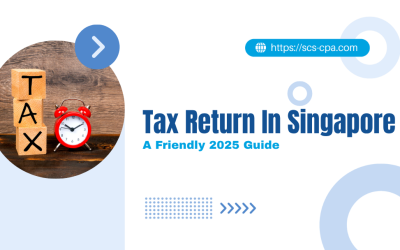In today’s volatile economic landscape, small and medium-sized enterprises (SMEs) face unprecedented challenges. From fluctuating market conditions to unpredictable revenue streams, maintaining a healthy cash flow is more critical than ever. Effective cashflow management can make the difference between surviving and thriving in these uncertain times. This article delves into the essential practises SMEs can adopt to ensure financial stability and resilience.
Key Practises
1. Maintain a Cash Reserve
Creating and maintaining a cash reserve is fundamental. This safety net can help businesses navigate unexpected expenses or downturns without resorting to costly loans.
2. Monitor Cash Flow Regularly
Regular monitoring of cash flow helps in identifying potential issues before they become critical. Using cash flow forecasting tools can provide insights into future cash needs and highlight areas for improvement.
3. Optimise Inventory Management
Efficient inventory management reduces excess stock and frees up cash. Implementing just-in-time inventory systems or negotiating favourable terms with suppliers can improve cash flow.
4. Implement Cost Control Measures
Controlling costs is crucial in maintaining positive cash flow. Regularly reviewing expenses and identifying areas where cuts can be made without impacting operations is essential.
5. Diversify Revenue Streams
Diversifying revenue streams can mitigate the risk of dependence on a single source of income. Exploring new markets or offering complementary products and services can enhance financial stability.
6. Strengthen Customer Payment Terms
Encouraging prompt payments from customers by offering incentives for early payment or implementing strict credit controls can significantly improve cash inflow.
Case Studies (names changed for privacy)
Tech Solutions Inc.
Tech Solutions Inc., a small IT consultancy, faced significant cash flow challenges due to delayed client payments. By implementing stricter payment terms and offering discounts for early payments, they reduced their accounts receivable period by 30%. Additionally, they started using cash flow forecasting tools, which helped them anticipate and prepare for lean periods.
GreenThumb Landscaping
GreenThumb Landscaping, a medium-sized landscaping company, struggled with inventory management, often overstocking supplies. By adopting a just-in-time inventory system and negotiating better terms with suppliers, they were able to reduce inventory costs by 20% and improve their cash flow significantly.
Artisan Bakers Co.
Artisan Bakers Co. diversified their revenue streams by expanding into online sales and offering baking classes. This not only increased their revenue but also provided a steady cash flow during off-peak seasons. They also maintained a robust cash reserve, which helped them weather the economic downturn caused by the pandemic.
Expert Advice
Axton Yong, Corporate Advisory
“Regular cash flow forecasting is crucial for SMEs. It allows businesses to anticipate future financial needs and make informed decisions. Investing in good financial management software can provide real-time insights and streamline the process.”
Alan Chang, Managing Director
“Cost control doesn’t mean cutting corners. It’s about being smart with your expenses. Evaluate your spending regularly and look for areas where you can save without compromising on quality or service.”
Nelson Ooi, Accounts and Outsourcing
“Building strong relationships with your customers and suppliers can have a positive impact on your cash flow. Clear communication, timely payments, and negotiating favourable terms can lead to more predictable cash inflows and outflows.”
Conclusion
Effective cashflow management is vital for SMEs navigating economic uncertainty. By adopting sound practises such as maintaining cash reserves, regular monitoring, optimising inventory, controlling costs, diversifying revenue, and strengthening payment terms, businesses can enhance their financial stability and resilience. Leveraging these strategies will not only help SMEs survive challenging times but also position them for sustained growth and success.
Corporate Income Tax Malaysia: Rates, Filing, and Strategic Compliance
Understand Malaysia’s corporate income tax system. Learn current tax rates, SME tiers, filing deadlines, LHDN requirements, penalties, and more.
Understanding the Core Types of Audits and Their Roles in Accounting in Singapore
Learn the key types of audits in Singapore to build trust and stay compliant. Examples are statutory, internal, GST, and forensic.
Tax Return In Singapore: A Friendly 2025 Guide
Want to be a responsible business owner? Read this guide to tax return in Singapore to help understand tax filing and play your part.




